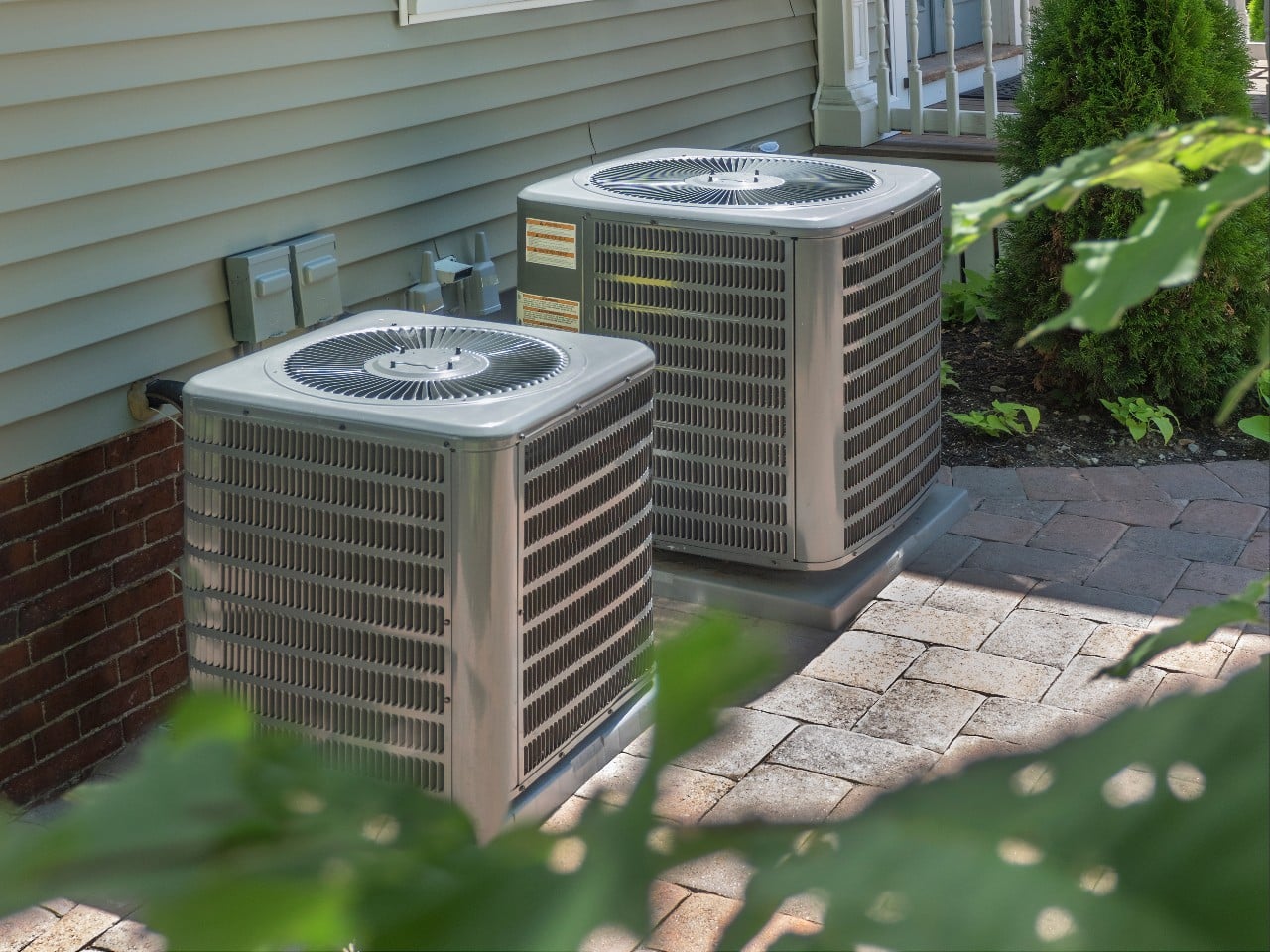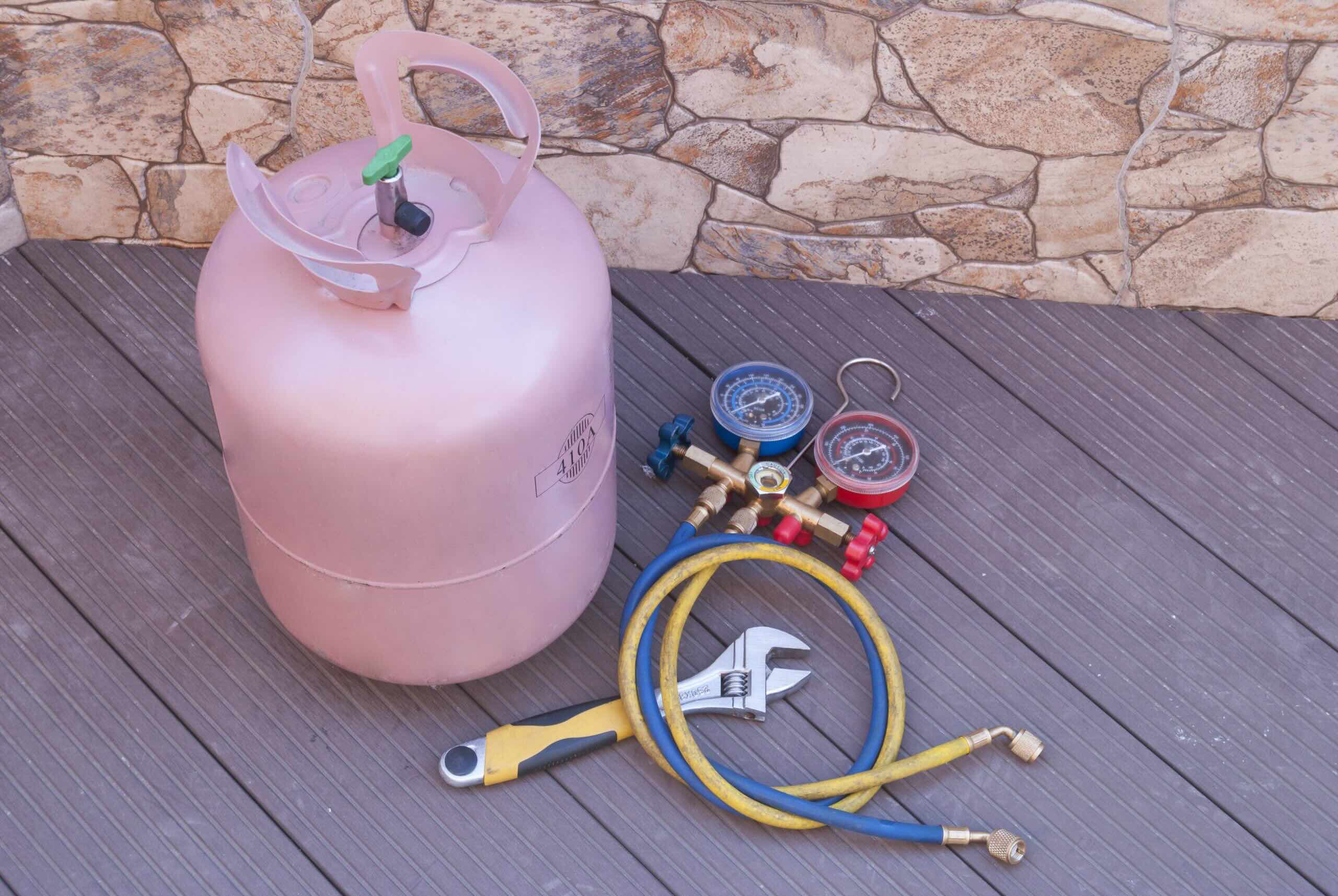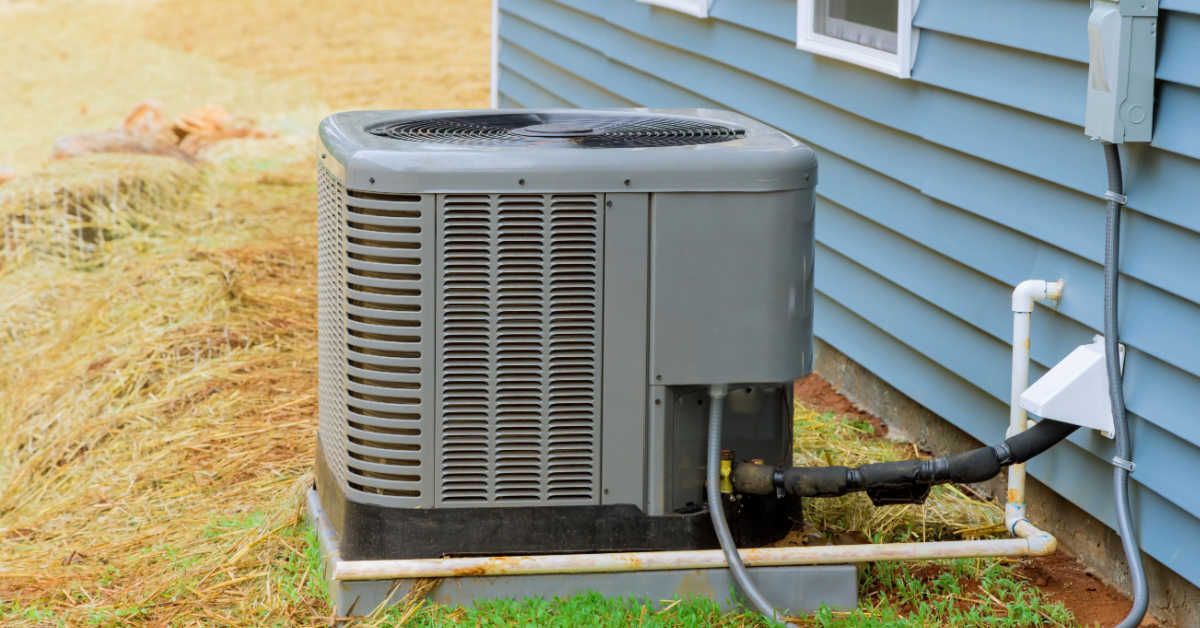Home>Home Maintenance>What Is The Average Cost Of Home Repair?


Home Maintenance
What Is The Average Cost Of Home Repair?
Modified: March 6, 2024
Learn the average cost of home repair and maintenance. Find out how much you need to budget for your home-maintenance needs.
(Many of the links in this article redirect to a specific reviewed product. Your purchase of these products through affiliate links helps to generate commission for Storables.com, at no extra cost. Learn more)
Introduction
Welcome to the world of home maintenance! Owning a home is a wonderful accomplishment, but it also comes with its fair share of responsibilities. One of the key aspects of being a homeowner is ensuring that your property is well-maintained, safe, and comfortable for you and your family. However, as any homeowner knows, repairs and maintenance are inevitable.
Whether you’re dealing with a leaky roof, a clogged pipe, faulty electrical wiring, or a malfunctioning HVAC system, home repairs can be a significant financial investment. It’s essential to understand the average cost of home repairs to plan your budget accordingly and avoid any unpleasant surprises.
Keep in mind that the cost of home repairs can vary depending on several factors. These factors can include the type of repair needed, the size and complexity of the project, the materials required, and even the location of your home. By understanding these factors, you can better assess the potential cost and make informed decisions about your home maintenance.
In this article, we’ll explore the average cost of common home repairs and discuss the various factors that can influence the overall cost. We’ll also provide tips on how to save money on home repairs and guide you on whether to hire professionals or tackle the repairs yourself.
So, whether you’re a new homeowner looking to familiarize yourself with home repair costs or a seasoned homeowner seeking to budget for your next project, let’s dive in and explore the world of home maintenance expenses!
Key Takeaways:
- Home repairs can vary in cost due to factors like repair type, size, materials, and location. Understanding these factors helps homeowners plan and budget for maintenance expenses effectively.
- Whether hiring professionals or opting for DIY, safety and cost-effectiveness should be prioritized. Regular maintenance, research, and energy-efficient choices can help save money on home repairs in the long run.
Factors Affecting Home Repair Costs
Several factors can influence the cost of home repairs. Understanding these factors can help you better estimate the expenses and plan your budget accordingly. Here are some key factors to consider:
1. Type of Repair:
The type of repair needed is a significant factor in determining the cost. Different repairs require various materials, expertise, and labor, which can vary in price. For example, roofing repairs may involve the cost of materials such as shingles, underlayment, and flashing, along with the labor required for installation.
2. Size and Complexity:
The size and complexity of the repair project can impact the cost. Generally, larger projects or those that require specialized knowledge or equipment will be more expensive. A small plumbing leak may be a relatively quick and easy fix, whereas replacing an entire plumbing system might require extensive work and incur higher costs.
3. Materials Required:
The quality and cost of materials used in the repair can significantly impact the overall expenses. Higher quality materials may be more durable and long-lasting but tend to be pricier. It’s vital to strike a balance between quality and budget when selecting materials.
Read more: What Is The Average Cost To Enclose A Patio
4. Location:
The location of your home can influence repair costs. Prices for labor, materials, and permits can vary depending on your geographic area. For instance, repair costs in urban areas may be higher due to increased demand and higher overhead costs for contractors.
5. Accessibility:
The accessibility of the repair site can impact the cost. If the repair is in a hard-to-reach area, such as a high ceiling or a tight crawl space, it may require additional labor or specialized equipment, driving up the overall expenses.
6. Scope of Repair:
The extent of the repair needed will also impact the cost. A minor patch-up job may be more affordable compared to a full-scale replacement or major renovation. Assess the scope of the repair and consult with professionals to get a better understanding of the costs involved.
It’s important to note that these factors can fluctuate, and every repair project is unique. It’s always a good idea to gather multiple quotes from reputable contractors to compare prices and ensure you’re getting a fair deal.
Now that we have an understanding of the factors influencing home repair costs, let’s explore the average cost of some common home repairs in the next section.
Average Cost of Common Home Repairs
When it comes to home repairs, it’s helpful to have a rough idea of the average costs. Keep in mind that these figures are estimates and can vary depending on the factors mentioned earlier. Let’s explore the average costs of some common home repairs:
Read more: What Is Average Cost Of Building A House
1. Roof Repair:
Roof repairs can range from small patches to more extensive restoration. On average, you can expect to spend between $300 and $1,000 for minor repairs, such as fixing a small leak or replacing a few shingles. However, if the repair involves significant damage or requires re-roofing, the cost can easily reach $5,000 or more.
2. Plumbing Repair:
Plumbing repairs can vary widely, depending on the issue and extent of the repair. Minor repairs, such as fixing a leaky faucet or unclogging a drain, may cost between $100 and $200. However, if the repair involves replacing pipes or addressing more complex plumbing issues, the cost can range from $500 to $1,200 or higher.
3. Electrical Repair:
Electrical repairs should always be performed by a licensed electrician for safety reasons. Minor repairs, such as replacing a faulty switch or outlet, may cost between $75 and $200. However, rewiring or addressing electrical panel issues can cost anywhere from $500 to $1,500 or more, depending on the complexity of the project.
4. HVAC Repair:
Heating, ventilation, and air conditioning (HVAC) repairs will depend on the specific problem and the type of system you have. Minor repairs, such as fixing a faulty thermostat or replacing a fan motor, can cost between $100 and $500. However, if the repair involves major component replacements or addressing complex issues, the cost can range from $500 to $2,000 or more.
Read more: What Is The Average Cost Of New Gutters
5. Flooring Repair:
The cost of flooring repairs will depend on the type of flooring and the extent of the damage. Minor repairs, such as fixing a small tile or hardwood plank, may cost around $200 to $500. However, larger repairs, such as replacing a significant portion of flooring, can range from $1,000 to $3,000 or more.
6. Painting:
The cost of painting can vary based on the size of the area and the quality of paint used. On average, you can expect to spend between $200 and $2,500 for professional painting services. Factors like the number of coats needed, the presence of intricate details or wallpaper removal, and the height of the walls can influence the final cost.
7. Window Replacement:
The cost of window replacement will depend on the type of windows and the size of the project. On average, you can expect to spend between $300 and $1,000 per window, including installation. Factors such as window material, energy efficiency, and custom sizing can impact the total cost.
Remember, these are average costs, and prices can vary based on location, materials used, and the specific requirements of your home. It’s always beneficial to consult with professionals to get accurate cost estimates for your unique repair needs.
Now that we have an idea of the average costs, let’s explore additional factors that can influence repair expenses in the next section.
Additional Factors Influencing Repair Costs
When it comes to home repairs, several additional factors can impact the overall cost. Understanding these factors will help you plan and budget more effectively. Let’s explore some of these factors:
1. Location:
The location of your home can significantly influence repair costs. Prices for labor, materials, and permits can vary depending on your geographic area. For example, repairs in urban areas or regions with higher costs of living may be more expensive compared to rural areas. It’s important to consider regional pricing differences when budgeting for home repairs.
2. Scope of Repair:
The scope of the repair project plays a crucial role in determining the overall cost. Minor repairs that involve a small area or a simple fix may be more affordable. However, larger repairs that require extensive work, such as structural modifications or system replacements, will naturally cost more. Assessing the scope of the repair and consulting with professionals will help you get a clear idea of the associated expenses.
3. Quality of Materials:
The quality of materials used in the repair can impact the cost. Higher-quality materials tend to be more durable and long-lasting, but they often come at a higher price point. It’s important to strike a balance between your desired quality and your budget. Discuss your options with professionals to determine the best materials that meet your needs.
4. Accessibility:
The accessibility of the repair site can affect the cost. If the repair requires access to difficult-to-reach areas, such as high ceilings, crawl spaces, or tight corners, it may require more time, effort, and specialized equipment. This can result in additional labor costs, driving up the overall expenses. Consider the ease or difficulty of accessing the repair site when evaluating the potential costs.
Keep in mind that these additional factors can vary depending on your specific repair project. It’s always a good idea to consult with professionals, such as contractors or repair specialists, who can provide you with personalized insights and estimates based on your unique circumstances.
Now that we’ve explored the various factors that influence repair costs, let’s discuss an important consideration when it comes to home repairs: hiring professionals versus opting for DIY solutions.
Hiring Professionals vs. DIY
When it comes to home repairs, one question that often arises is whether to hire professionals or tackle the repairs yourself. Both options have their advantages and considerations. Let’s explore the benefits of hiring professionals and the potential advantages of a DIY approach:
Hiring Professionals:
1. Expertise: Professionals bring specialized knowledge and experience to the job. They have the skills and training to handle complex repairs efficiently and effectively, ensuring quality workmanship.
2. Time-Saving: Hiring professionals eliminates the need for you to devote time and effort to researching, learning, and executing the repair process. They can complete the job more quickly, allowing you to focus on other responsibilities or enjoy your free time.
3. Safety: Professional contractors are well-versed in safety protocols and know how to handle potentially hazardous situations. They have the necessary tools and equipment to perform repairs safely, minimizing the risk of accidents or injuries.
4. Warranty and Guarantees: Reputable professionals often offer warranties or guarantees on their work, providing you with peace of mind. If any issues arise after the repair, they will address them promptly and at no additional cost.
5. High-Quality Results: Professionals are committed to delivering high-quality results. They have access to better materials, tools, and techniques, ensuring that the repair is durable and long-lasting.
DIY Approach:
1. Cost Savings: One of the main advantages of the DIY approach is the potential cost savings. By undertaking the repair yourself, you can avoid labor costs associated with hiring professionals, especially for smaller or simpler projects.
2. Learning Opportunity: Tackling a home repair yourself provides an opportunity to learn new skills and gain hands-on experience. It can be a rewarding and empowering experience, allowing you to develop a deeper understanding of your home and its systems.
3. Flexibility: DIY repairs provide the flexibility to work at your own pace and on your schedule. You have control over the process and can make adjustments or modifications as needed without relying on external contractors.
Before deciding whether to hire professionals or take the DIY route, consider the complexity of the repair, your personal skill level, and the time and resources you can dedicate. For major repairs, complex projects, or those involving safety concerns, hiring professionals is generally recommended to ensure the best possible outcome.
On the other hand, if you have the necessary skills, resources, and confidence to tackle a smaller, straightforward repair, a DIY approach can be a viable option that offers cost savings and a sense of accomplishment.
Note:
Regardless of which option you choose, it’s important to prioritize safety. If you are unsure about your abilities or if the repair involves electrical, plumbing, or structural components, it is always best to consult with a professional to avoid potential risks and ensure the problem is addressed correctly.
Now that we’ve discussed the pros and cons of hiring professionals versus the DIY approach, let’s explore some tips for saving money on home repairs.
Read more: What Is The Average Cost Of Gutters Per Foot
Tips for Saving Money on Home Repairs
Home repairs can be costly, but there are several smart strategies you can implement to save money without compromising on quality. Here are some tips to help you reduce your home repair expenses:
1. Regular Maintenance:
Stay proactive with regular maintenance. By addressing small issues promptly, you can prevent them from escalating into major repairs. Regularly inspect your home and tackle any minor repairs or maintenance tasks to avoid costly repairs down the line.
2. Do Your Research:
Take the time to research and gather multiple quotes from different contractors. By comparing prices and evaluating the expertise and reputation of the professionals, you can find a balance between cost and quality. Don’t automatically go for the cheapest option; consider the value and reliability of the services offered.
3. DIY when Possible:
For simple repairs that you feel confident in handling, opting for a do-it-yourself approach can save you money. Online tutorials, instructional videos, and DIY guides can provide step-by-step guidance and help you complete basic repairs without hiring professionals.
4. Shop for Materials:
Compare prices and look for discounts or sales when purchasing materials for your home repairs. Whether it’s lumber, paint, plumbing fixtures, or electrical components, shopping around can help you find the best deals and save money on supplies.
5. Consider Refurbished or Secondhand Materials:
Depending on the project and the materials required, consider using refurbished or secondhand materials. Places like salvage yards or online marketplaces often have high-quality materials at significantly lower prices. Just ensure that the materials are in good condition and suitable for your specific repair needs.
6. Prioritize Energy Efficiency:
When replacing components or systems in your home, prioritize energy efficiency. Energy-efficient upgrades can help you save money on your utility bills in the long run. Explore options like energy-saving appliances, LED lighting, and insulation to reduce your energy consumption and expenses.
7. Preventative Measures:
Take preventive measures to avoid future damage. For example, install gutter guards to prevent clogging and water damage, or apply sealant to protect wood surfaces from rot and deterioration. These proactive steps can help you avoid costly repairs and increase the lifespan of your home’s components.
8. Plan for Future Repairs:
Set aside money each month for future repairs and maintenance. Building an emergency fund specifically for home repairs will help you cover unexpected expenses without putting a strain on your budget or resorting to high-interest loans.
Remember, while it’s important to save money on home repairs, it’s equally important to prioritize quality and safety. Some repairs may require professional expertise and should not be attempted as DIY projects. Always evaluate the complexity and potential risks before deciding to tackle a repair yourself.
By implementing these money-saving tips and being proactive in your home maintenance, you can keep your repair costs under control and ensure the long-term health and value of your home.
Now that we’ve discussed strategies for saving money on home repairs, let’s conclude our article.
Conclusion
Home repairs are an inevitable part of homeownership, and understanding the average cost of repairs can help you plan your budget effectively. By considering various factors such as the type of repair, size and complexity, materials needed, location, and accessibility, you can get a better estimate of the expenses involved.
Roof repair, plumbing repair, electrical repair, HVAC repair, flooring repair, painting, and window replacement are common repairs homeowners may encounter. While the average costs can vary depending on the specific project and location, having a general idea can help you prepare financially.
Moreover, additional factors such as location, scope of repair, quality of materials, and accessibility can influence repair costs. It’s important to take these factors into account when estimating expenses and seeking quotes from professionals.
Deciding whether to hire professionals or tackle repairs yourself is a personal choice. Hiring professionals provides expertise, time-saving benefits, and professional warranty/guarantees. In contrast, the DIY approach can save costs and offer a learning experience. However, safety should always be a priority, especially for complex repairs involving electrical, plumbing, or structural systems.
To save money on home repairs, consider regular maintenance, researching quotes, doing DIY repairs when possible, shopping for materials, and prioritizing energy efficiency. Taking preventive measures and planning for future repairs through an emergency fund can also help you avoid unexpected financial burdens.
Remember, maintaining your home is not just about fixing issues but also ensuring the safety, comfort, and longevity of your living space. By staying proactive, being aware of potential repair needs, and addressing them in a timely manner, you can save money in the long run and enjoy a well-maintained home.
Whether you’re a new homeowner or someone experienced in the world of home repairs, these tips and insights will empower you to make informed decisions and manage your home maintenance expenses effectively.
Now go forth and tackle those repairs with confidence, knowing that you have the knowledge to navigate the world of home maintenance and save money along the way!
Frequently Asked Questions about What Is The Average Cost Of Home Repair?
Was this page helpful?
At Storables.com, we guarantee accurate and reliable information. Our content, validated by Expert Board Contributors, is crafted following stringent Editorial Policies. We're committed to providing you with well-researched, expert-backed insights for all your informational needs.







